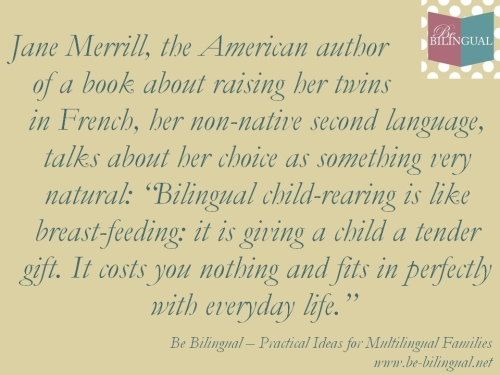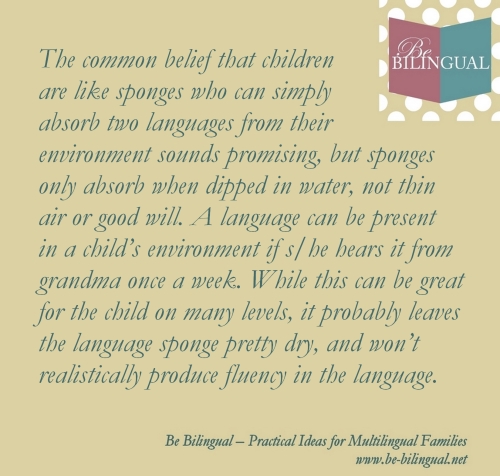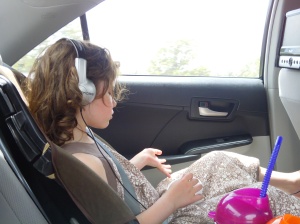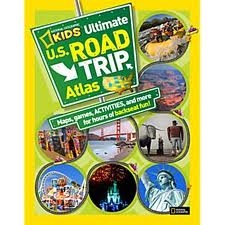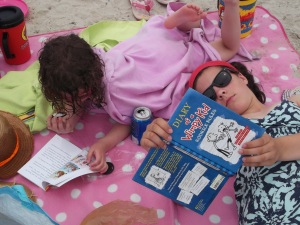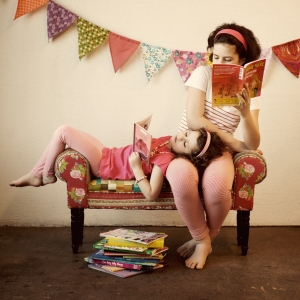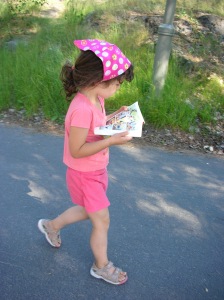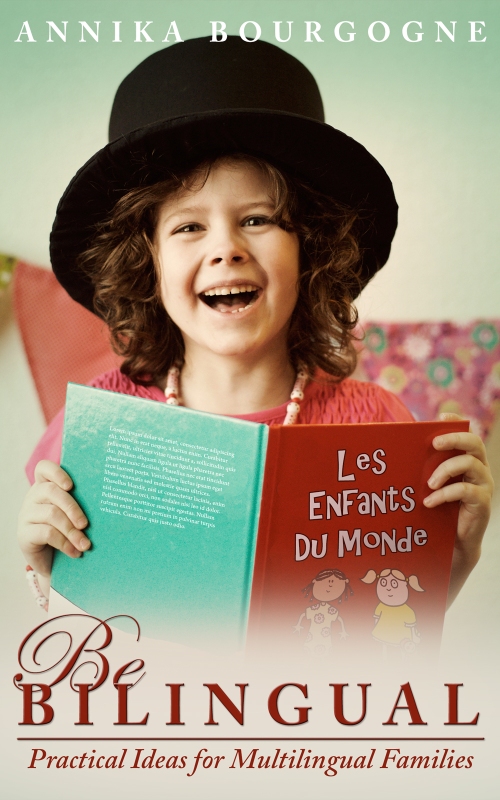The other week I had the idea to take out quotes from my book and make pictures of them that I could post here and on my Facebook page. I was feeling a bit self-conscious about it and for this reason chose as my first picture the one above, which is really a quote within a quote. If I had any concerns about it, it was that people might react to the part about breast-feeding, which isn’t quite as popular everywhere as it is in northern Europe. I was expecting people to ask me if I meant (by posting it) that those who didn’t want to or weren’t able to breastfeed were depriving their children of a tender gift (by the way, I didn’t). However, none of the multiple comments and messages that I received about the picture had anything to do with this. Instead, many were appalled for the quote to say that raising bilingual children didn’t cost anything and felt that it furthermore implied the process to be easy and effortless. When I think about it, I understand how people could see it this way. My interpretation was different and I’ll get to that later. First, however, I would like to explore what it is costing our family, every member of it, to raise our children bilingually.
My mother grew up in a very poor bilingual household and yet, she was one of the most balanced bilinguals (a term I don’t like but feel I need to use here) that I have ever met. Her parents each spoke a different native tongue to her and the community around her provided ample opportunities to practice them as both were official languages in Finland. The parents’ lack of time and money in no way hindered her language development. Now fast forward several decades and substitute Swedish, one of her languages, by French, which does not exist in the community and has thus made our family’s bilingual journey very different from that of my mother’s.
To reinforce our children’s minority language, French, there have been financial costs as well as emotional ones. We are a normal mid-income family so there has always been a trade-off included in our choices. We weren’t able to buy the best prams for our kids as babies, we’ve always had just one car and we still live in a modest house. We didn’t buy a double amount of books, CDs and DVDs – we only bought them in French and took out the Finnish ones at the library or borrowed from friends and neighbors. Instead, we did hire a French-speaking babysitter and traveled to France twice a year, which at times was very hard financially – especially when my husband was laid off during the global recession ( I share this and all my money-saving ideas in my book – if you are in a similar situation please email me at annika@be-bilingual.net and I will send that part to you free of charge). Even if both our countries are on the same continent this is the one thing that has necessitated the most financial sacrifices, but has on the other hand also brought the greatest rewards.
In addition to financial costs there are also emotional ones that have come with family bilingualism. As the only native speaker of the language, my husband has put considerable effort into passing on his language – often at the expense of personal comfort and interests. Both our families have been left out of many conversations my husband and I have had with our children in their presence as they didn’t understand the language. On the other hand, these days they can have any conversation they want with our children as the language is no longer an issue. Our children have not spent their summers in Finland or gone to soccer and scout camps with their friends, well, ever, as that is the only time they can spend several weeks with their grandparents in France. Having been raised in part by my grandparents I can think of worse sacrifices to make. Personally I for years dreamed of traveling somewhere else than to France, which was our only vacation destination. To the list of emotional costs I would also add the constant worrying about not doing enough, not making progress, fearing that our children might not be accepted by their French peers, and struggling to engineer situations where using the language is fun and useful for our children. I’ve had to learn the hard way what has since become my motto: to make bilingualism a priority, but not a source of stress.
I think we can agree that bilingualism does not come for free, on a financial nor emotional level, but there is also the question of what it would cost our family NOT to do it? You might have read my other posts and know that I have first hand experience of this. Resentment, disappointment, damage to self-worth are just a few words that come to mind. Therefore, should we discourage those who don’t have the means to travel or to buy the books and pay the language school tuition to raise their children bilingually? I really don’t think so.
This takes us back to the quote and how I interpreted it. Isn’t speaking to your baby, in your native or chosen language, where it all starts? For them to grow and to reach their full potential they will need more than “milk” later on, but in the beginning it’s all they require and can handle. If you never did anything more than that, with pride and expecting your children to learn your language, I’m sure it would be worth it. Had my mom done that it would have made me, even if not fully bilingual, at least a part of her world. To me, that would have been a tender gift.
